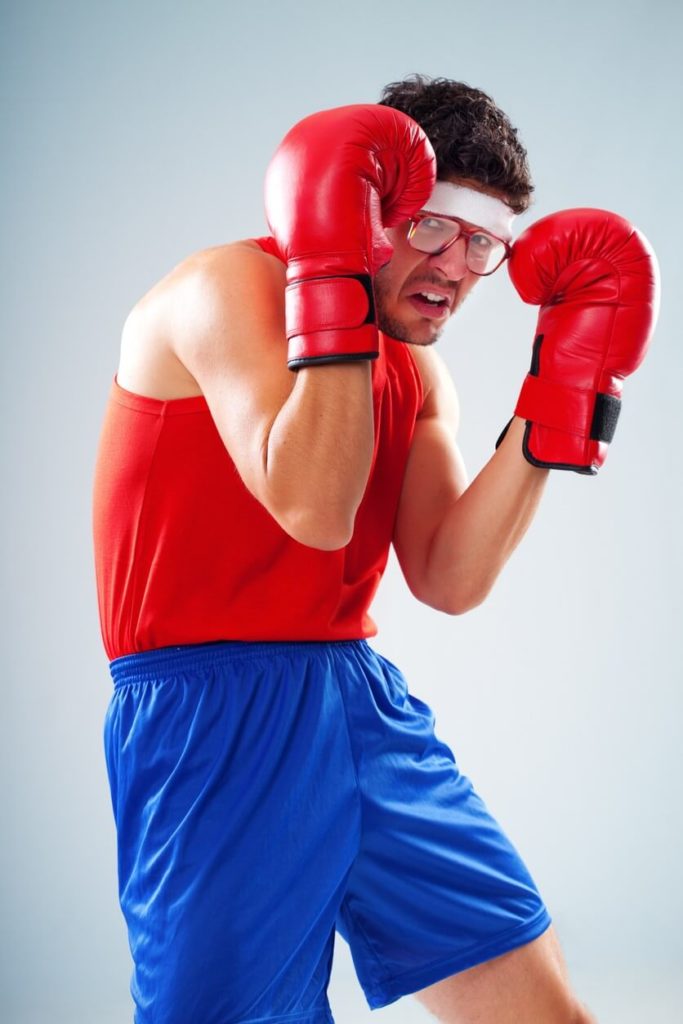Anxiety after sport and anxiety during physical activity?
Written by: Loris Vitry (holistic coach)
Validated by: Cathy Maillot (Osteopath)
Caution: If you have any medical questions or concerns, please speak to your doctor. Even if the articles on this site are based on scientific studies, they do not replace professional medical advice, diagnosis or treatment.

Among the remedies for anxiety, sport is often cited.
It helps the production of feel-good hormones, lowers the heart rate after practice, increases self-confidence and decreases exposure to symptoms of anxiety.
However, physical activity can trigger anxiety and promote anxiety.
Indeed, symptoms of panic and anxiety can be felt during and after sport such as: shallow breathing, a rapid pulse, chest pressure, sweating and sometimes even nausea.
So sport can turn out to be terrible.
So find out in this article everything you need to know about this phenomenon!
Why do we feel anxiety after sport and anxiety during physical activity?
One of the benefits of physical activity is the release of endorphins, which provides a feeling of relaxation and euphoria.
The other is that it increases neurotrophics, which repair brain cells damaged by stress and depression.
But exercise also increases the stress hormone cortisol, and some are very sensitive to fluctuating hormones.
Their bodies respond to this change by making more cortisol and adrenaline to defend themselves.
Thus, they end up with an overflow of hormones that causes an anxiety attack.
And even right after exercise, they are often prone to anxiety.
Coming to sport with anxiety can get horrible from the start of the workout.
Indeed, as soon as the amygdala causes the heart rate to increase, the release of adrenaline and the preparation of muscles for action, a little anxious feeling can lead you to pass out.
All these chemical mechanisms prepare your body to fight or flee, you are more alert.
As a result, your dilated pupils provide light around you and the people around you are sources of anxiety.
Combined with the redistribution of your blood to your muscles, these factors overwhelm you until you pass out.
It’s that apocalyptic sight, accompanied by shaking legs, stomach cramps, and withering mouth that makes you dizzy and makes you shun sports.
The anxiety during physical activity is the product of your own thoughts and thoughts that terrify you.
This anxiety leads to the development of agoraphobia, the fear of physical activity.
It can even go as far as preventing you from going to work, or driving your car.
How can physical activity promote anxiety and anxiety?
An anxiety attack is a very unpleasant level of extreme arousal.
The amygdala is the center of fear and the starting point for anxiety.
The different bodily sensations are threatening stimuli for your body, which responds to them by activating the sympathetic nervous system (the one that controls the body’s fight or flight).
Adrenaline produced in large quantities induces symptoms indicative of an anxiety attack.
To cause anxiety during physical activity and anxiety after sport, several factors can come into play:
- Excess lactic acid: a compound released by the body during intense workouts. Its build-up affects the brain and makes the muscles feel sore. Lactic acid is more easily removed from the brain by some than others .For the latter, it “overloads” the amygdala, causing an anxiety or anxiety attack.
- Breathing: Hyperventilation is caused by rapid breathing, resulting in changes in the levels of carbon dioxide and oxygen in the blood, resulting in a decrease in the volume of blood vessels in the brain and an increase in lactic acid in the brain.And finally, the amygdala “overheats” and leads to angst and anxiety.
- Heart rate: the rise in the respiratory rate is accompanied by the production of cortisol. This increases the performance of some, but for others the sweating induces disrupts concentration and installs hyperexcitation, and finally the panic.
Unlike those who view their increased heart rate as evidence that they are working hard, others view it as a cause for worry (fear of a heart attack, fainting, or fainting). death).
This excitement triggers the adrenal system and leads to an anxiety attack.
In general, people with anxiety, stress or anxiety disorders are more likely to have panic attacks during physical activity.
Some studies show that genetics may explain the predisposition of some to anxiety after sport, and anxiety during physical activity.
Sensitivity to inhalation of carbon dioxide, for example, is a genetic factor that promotes brain acidity.
Lactate is more accumulated in this case and increases the risk of panic attacks during and outside of training sessions.
What to do to avoid anxiety and anxiety related to sport?
Aerobic exercise (cardio) requires a lot of oxygen and therefore increases blood circulation.
This makes them more likely to cause anxiety attacks than less intense exercise.
The actual exercise isn’t the problem, it’s your body’s reaction to it.
And their gradual practices reduce anxiety levels in general.
To calm anxiety after sports, or anxiety during physical activity, you can:
- Stopping the effort to slow down your heart rate
- Trying to control your breathing
- Put yourself in a ventilated space
- Take a hot shower
- Chat with someone
- Lie down or stretch
Paradoxically, those who dare “exposure therapy,” by tolerating their increased heart rate, sweating, muscle tension, and rapid breathing, manage to desensitize themselves from the physical symptoms of anxiety and anxiety.
As a prevention, you can alleviate your anxieties and anxieties by controlling the exercises that your body can tolerate.
Try workouts like Pilates or yoga for better focus and moments of relaxation.
To adapt to cardio exercises, you can start with brisk walking.
Anxiety and angst can take a lot of things away from you like: relationships, jobs, travel, sleep, etc.
As much as the endorphins rush is pleasurable for some, it is also a feeling of danger for others.
Intense anxiety can be felt after intense workout causing heart palpitations, dizziness and a feeling of fear.
The symptoms of anxiety after exercise are so intense that they are confused with those of a heart attack.
So you now know how to fix it!
Continue reading:
Self-hypnosis to sleep and get back to sleep?
Assertiveness and self-esteem: the best tools and techniques?

